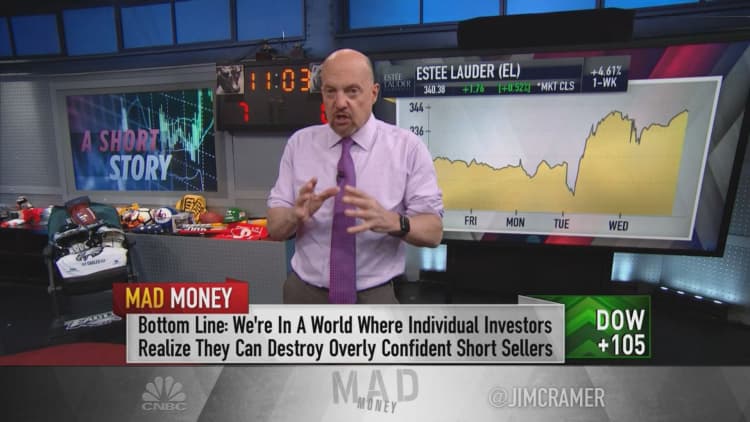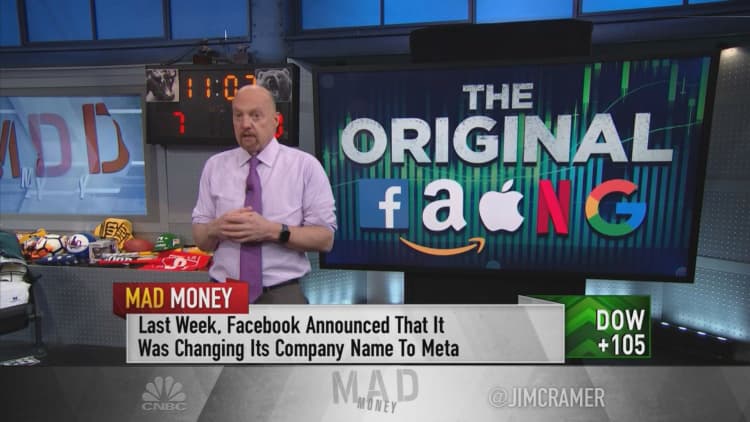
CNBC's Jim Cramer said Wednesday he expects more companies to reach meme-stock status in the future unless professional investors recognize market dynamics have changed.
The "Mad Money" host pointed to recent events surrounding car rental firm Avis Budget and retailer Bed Bath & Beyond. Both companies saw their shares soar Tuesday in apparent short squeezes, with Avis' move coming during the regular session and Bed Bath & Beyond's in after-hours trading.
"We now live in a world where individual investors like you have realized they can destroy the short-sellers whenever the short-sellers get too overconfident," Cramer said, alluding to the meme-stock frenzy that began in January when retail traders crowded into heavily shorted GameStop and AMC Entertainment.
Retail investors know they can crowd into a stock, pressuring short-sellers to respond and cause shares to soar, Cramer said. "That's what created situations like Avis or Bed Bath, and it created GameStop and it created AMC, and I bet we'll see many more of those until the hedge funds learn their lesson: Stay away from crowded shorts."
Avis had 20.5% of its shares available for trading sold short before it reported earnings Tuesday morning, according to FactSet, while Bed Bath & Beyond had 27% of its float sold short.
When shorting a stock, investors borrow shares expecting the price to fall. When that happens, the short seller purchases back the stock at its lower level and returns the borrowed shares, making money off the difference. But if a stock rises in value, short-sellers may try to limit their losses by buying shares back at higher prices.
The large moves in shares of Avis and Bed Bath & Beyond were likely aided by the abnormally high short positions in the respective stocks.
Cramer, himself a former hedge fund manager, said he understands why money managers short stocks of struggling companies as part of their investment strategy. However, he expressed some surprise that short-sellers are still willing to get involved with names that have large bets against them, knowing how that backfired in the cases of GameStop and AMC once retail traders recognized their potential to ignite short squeezes.
"Memo to the shorts: If you think you're shooting fish in a barrel when you go after these companies, you may not be the guy with the gun," Cramer said.

Sign up here for the new CNBC Investing Club newsletter to follow Jim Cramer's every move in the market, delivered directly in your inbox.
Questions for Cramer?
Call Cramer: 1-800-743-CNBC
Want to take a deep dive into Cramer's world? Hit him up!
Mad Money Twitter - Jim Cramer Twitter - Facebook - Instagram
Questions, comments, suggestions for the "Mad Money" website? madcap@cnbc.com



